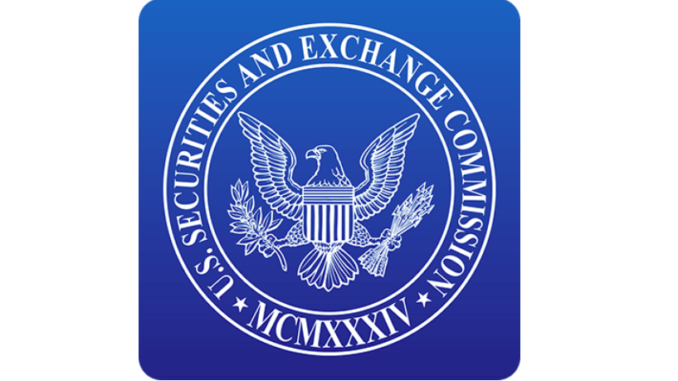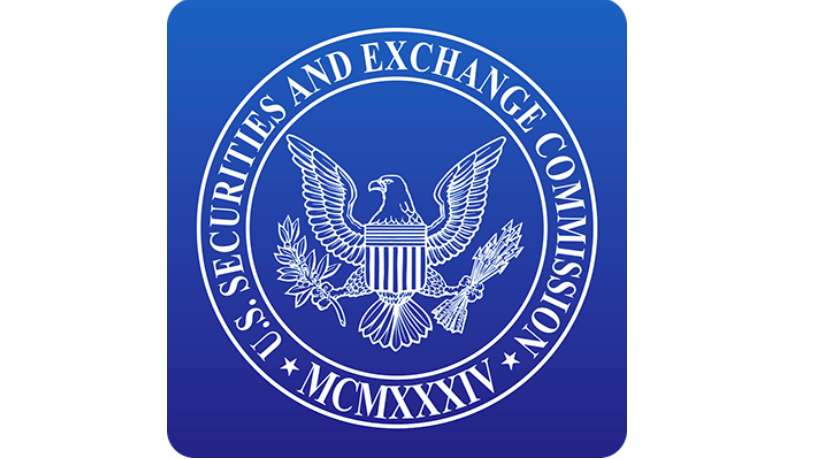
As part of Artificial Lawyer’s service to readers the following announcement from the US Securities and Exchange Commission (SEC) is reproduced with regard to initial coin offerings (ICOs) of cyrptocurrencies and the trading of them using online exchanges. It was announced today, 7 March, 2018.
This is important to lawyers and legal tech companies for several reasons. First because some legal tech companies have conducted, or plan to launch, an ICO to fund their activities. While the SEC has already made some pronouncements on cryptos with regard to their nature, i.e. that they look just like securities, this is the fullest statement yet and also focuses on exchanges.
A second reason is that a growing number of lawyers around the world are both advising on ICOs and also launching claims against the tech companies that launched the ICOs. Hence, when the world’s most powerful financial regulator fires with both barrels, it’s worth taking note of and this will no doubt be mentioned in the growing number of court cases now moving into the US courts.
Of particular importance is the section that covers issues for those that trade on crypto exchanges, which anecdotal evidence suggests includes a growing number of lawyers. There is also a section on red flags related to owning and using digital wallets and whether these comply with securities regulations.
In short, what was already a regulatory hot potato just got a lot hotter….Looks like this is going to generate more work for lawyers though, come what may. As the SEC says at the end: ‘We encourage market participants….to consult with legal counsel to aid in their analysis of federal securities law issues.’
Below is (with some small edits) the SEC statement.
—
Statement on Potentially Unlawful Online Platforms for Trading Digital Assets
Divisions of Enforcement and Trading and Markets
[ March 7, 2018 ]
Online trading platforms have become a popular way investors can buy and sell digital assets, including coins and tokens offered and sold in so-called Initial Coin Offerings (“ICOs”). The platforms often claim to give investors the ability to quickly buy and sell digital assets. Many of these platforms bring buyers and sellers together in one place and offer investors access to automated systems that display priced orders, execute trades, and provide transaction data.
A number of these platforms provide a mechanism for trading assets that meet the definition of a “security” under the federal securities laws. If a platform offers trading of digital assets that are securities and operates as an “exchange,” as defined by the federal securities laws, then the platform must register with the SEC as a national securities exchange or be exempt from registration. The federal regulatory framework governing registered national securities exchanges and exempt markets is designed to protect investors and prevent against fraudulent and manipulative trading practices.
Considerations for Investors Using Online Trading Platforms
To get the protections offered by the federal securities laws and SEC oversight when trading digital assets that are securities, investors should use a platform or entity registered with the SEC, such as a national securities exchange, alternative trading system (“ATS”), or broker-dealer.

Likewise, the SEC does not review the trading protocols used by these platforms, which determine how orders interact and execute, and access to a platform’s trading services may not be the same for all users. Again, investors should not assume the trading protocols meet the standards of an SEC-registered national securities exchange. Lastly, many of these platforms give the impression that they perform exchange-like functions by offering order books with updated bid and ask pricing and data about executions on the system, but there is no reason to believe that such information has the same integrity as that provided by national securities exchanges.
In light of the foregoing, here are some questions investors should ask before they decide to trade digital assets on an online trading platform:
- Do you trade securities on this platform? If so, is the platform registered as a national securities exchange (see our link to the list below)?
- Does the platform operate as an ATS? If so, is the ATS registered as a broker-dealer and has it filed a Form ATS with the SEC (see our link to the list below)?
- Is there information in FINRA’s BrokerCheck ® about any individuals or firms operating the platform?
- How does the platform select digital assets for trading?
- Who can trade on the platform?
- What are the trading protocols?
- How are prices set on the platform?
- Are platform users treated equally?
- What are the platform’s fees?
- How does the platform safeguard users’ trading and personally identifying information?
- What are the platform’s protections against cybersecurity threats, such as hacking or intrusions?
- What other services does the platform provide? Is the platform registered with the SEC for these services?
- Does the platform hold users’ assets? If so, how are these assets safeguarded?
Considerations for Market Participants Operating Online Trading Platforms
A platform that trades securities and operates as an “exchange,” as defined by the federal securities laws, must register as a national securities exchange or operate under an exemption from registration, such as the exemption provided for ATSs under SEC Regulation ATS. An SEC-registered national securities exchange must, among other things, have rules designed to prevent fraudulent and manipulative acts and practices.
Additionally, as a self-regulatory organization (“SRO”), an SEC-registered national securities exchange must have rules and procedures governing the discipline of its members and persons associated with its members, and enforce compliance by its members and persons associated with its members with the federal securities laws and the rules of the exchange. Further, a national securities exchange must itself comply with the federal securities laws and must file its rules with the Commission.
An entity seeking to operate as an ATS is also subject to regulatory requirements, including registering with the SEC as a broker-dealer and becoming a member of an SRO. Registration as a broker-dealer subjects the ATS to a host of regulatory requirements, such as the requirement to have reasonable policies and procedures to prevent the misuse of material non-public information, books and records requirements, and financial responsibility rules, including, as applicable, requirements concerning the safeguarding and custody of customer funds and securities. The overlay of SRO membership imposes further regulatory requirements and oversight. An ATS must comply with the federal securities laws and its SRO’s rules, and file a Form ATS with the SEC.
Some online trading platforms may not meet the definition of an exchange under the federal securities laws, but directly or indirectly offer trading or other services related to digital assets that are securities. For example, some platforms offer digital wallet services (to hold or store digital assets) or transact in digital assets that are securities. These and other services offered by platforms may trigger other registration requirements under the federal securities laws, including broker-dealer, transfer agent, or clearing agency registration, among other things. In addition, a platform that offers digital assets that are securities may be participating in the unregistered offer and sale of securities if those securities are not registered or exempt from registration.
In advancing the SEC’s mission to protect investors, the SEC staff will continue to focus on platforms that offer trading of digital assets and their compliance with the federal securities laws.
Consultation with Securities Counsel and the SEC Staff
We encourage market participants who are employing new technologies to develop trading platforms to consult with legal counsel to aid in their analysis of federal securities law issues and to contact SEC staff, as needed, for assistance in analyzing the application of the federal securities laws.In particular, staff providing assistance on these matters can be reached at FinTech@sec.gov.